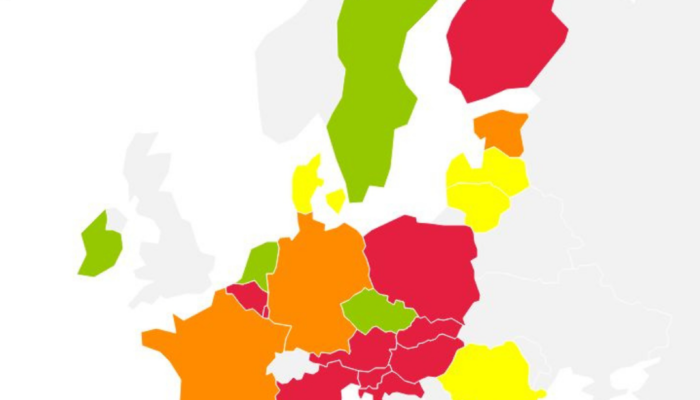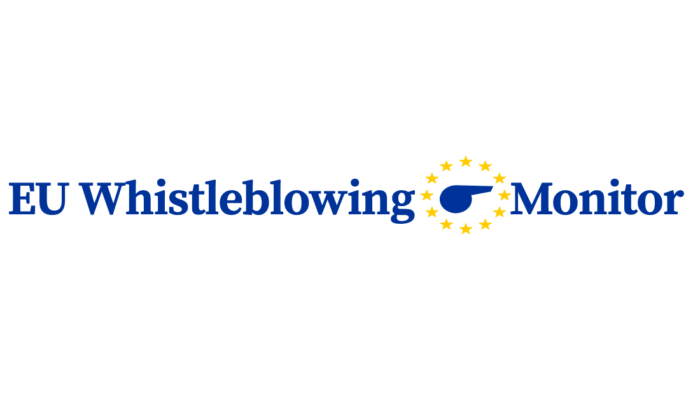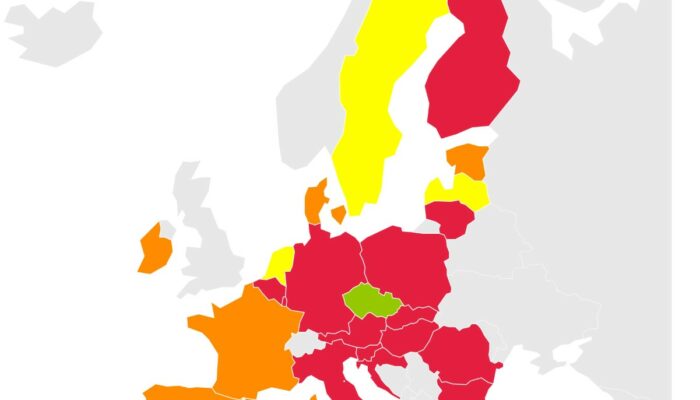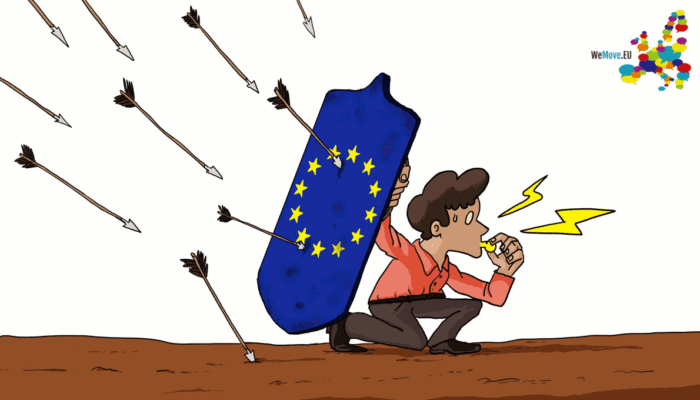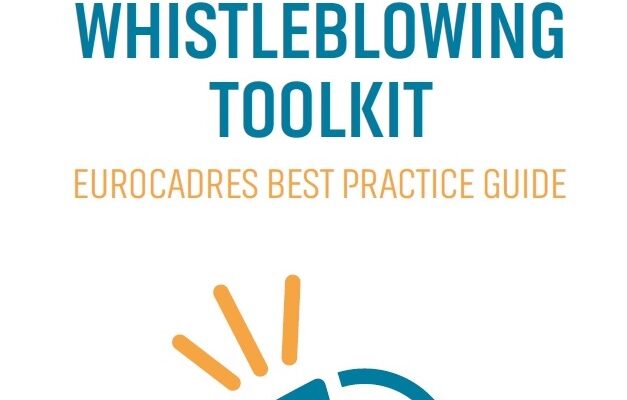Significantly stronger Whistleblower Directive clears crucial EP hurdle
The recent vote by the European Parliament’s Legal Affairs Committee, JURI, is primarily a cause for celebration for all European’s who wish for a more transparent and open Europe.
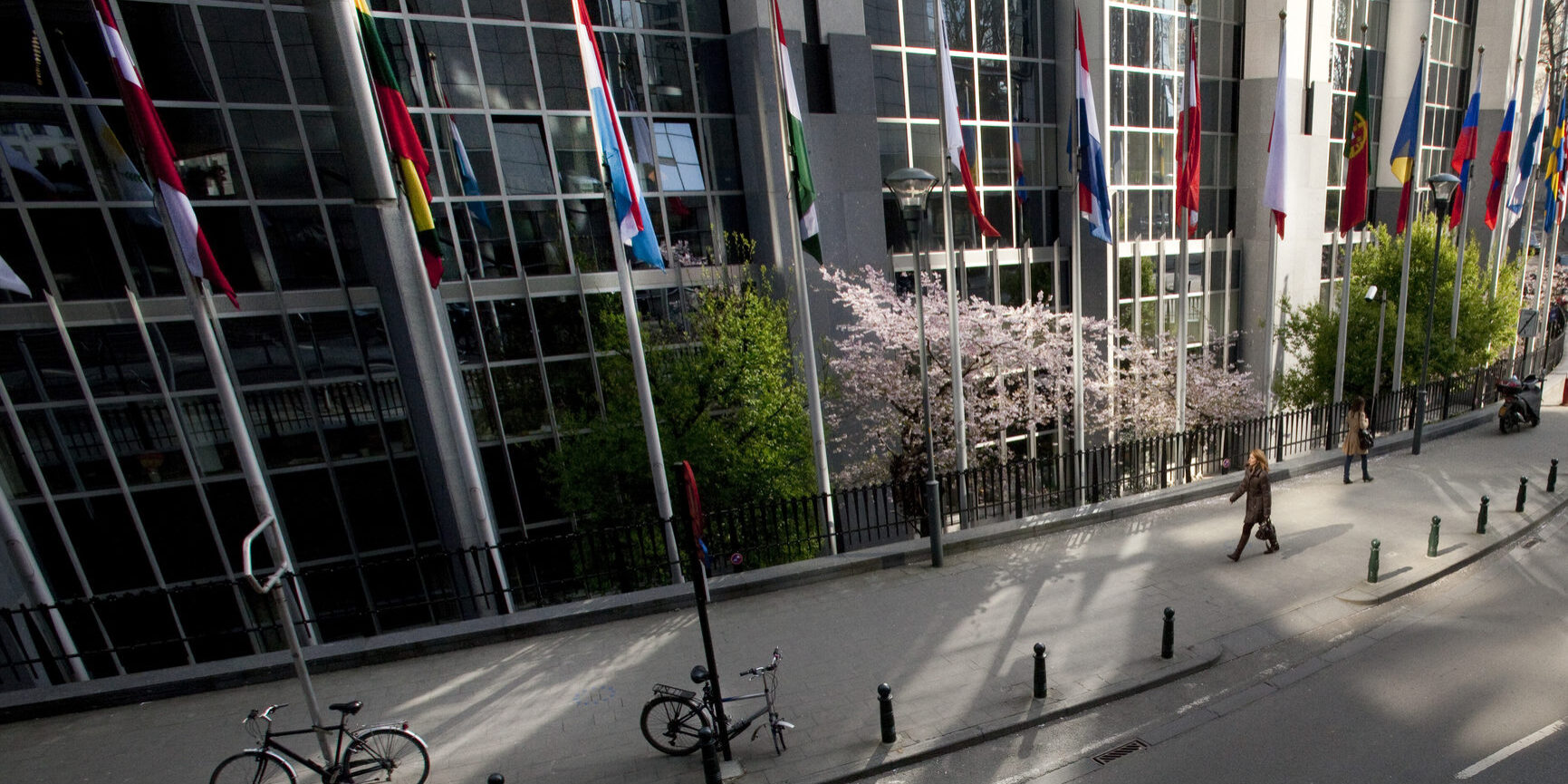
The Committee adopted its report on the whistleblower protection directive on the 20th of November. The report has been largely welcomed as introducing texts more robust and more supportive of those reporting crimes and wrongdoing, than the original European Commission proposal. The Directive is currently under scrutiny by the Council, the EU Member States. WhistleblowerProtection.EU platform members, while celebrating this victory, knows the hard work begins again, in terms of getting the legislation approved by Council and to stand the test of the trilogue, the negotiations between the European Parliament, Council and Commission.
the hard work begins again, in terms of getting the legislation approved by Council and to stand the test of the trilogue
Commenting on this crucial parliamentary vote, Martin Jefflén, President of Eurocadres, noted: ‘This is an important milestone in the process to obtain a legislation which we desperately need to strengthen democracy, transparency and workers’ rights. Clearly the parliament has improved the proposal on many important points, such as adding the right to report on the abuses of workers’ rights, supporting anonymous reporting and stronger rights to report to media and the public.
Nicholas Aiossa, Policy Officer at Transparency International EU, and a major contributor to the work of the platform, reflecting on events in the European Parliament said: ‘It is disgraceful that whistleblowers continue to face potential retaliation for exposing corrupt practices. The European Parliament has rightly sought to strengthen protection for those who speak out against wrongdoing across the EU. Now it will be up to the Council to continue in this positive direction’.
The European Parliament has rightly sought to strengthen protection for those who speak out against wrongdoing across the EU
Ricardo Gutiérrez, General Secretary of EFJ, welcomed the decision of JURI Committee to extend the scope of proposed legislation to working conditions, public health and safety, and to strengthen the role of trade unions. He also welcomed the efforts to guarantee robust protection to those choosing to turn directly to the media to report unlawful or wrongful acts.
Although this legislation covers Europe, there has been a determined international effort which helped achieve this week’s success at the European Parliament. Tom Devine, Legal Director of Government Accountability Project, based in Washington DC, recently visited Brussels to offer counsel and guidance to those lobbying for a better directive. His team also developed important legal guidelines, giving detailed suggestions on improving the Commission’s original proposal.
Devine welcomed the JURI vote, saying: ‘The European Union Whistleblower Directive voted out of committee, on Tuesday, would set the global standard for best practice rights protecting freedom of speech where it counts the most—challenging abuses of power that betray the public trust. If approved, this will be a landmark paradigm shift protecting freedom of speech and give whistleblowers a meaningful voice to make a difference. The new rights would ban direct or indirect retaliation against all current or former, public or private workers and volunteers who blow the whistle, as well as those who assist them including Civil Society Organizations and media that report on their evidence. The new Directive is far stronger than U.S. whistleblower rights.’
The new Directive is far stronger than U.S. whistleblower rights.
EPSU’s General Secretary, Jan Willem Goudriaan, sees the importance of Tuesday’s vote in terms of, ‘the many workers who feel the urge to speak out for the public good but are not free to do so’. He believes that after years of austerity, EU-wide protection is particularly important in public services. ‘We have recent examples where workers in the elderly care sector reported wrongdoing and malpractice over hygiene and food for residents to management,’ continues Goudriaan, ‘caused by lack of funding. They were ignored at best or fired at worst. This is why safe external and public channels must be made available to them, with the support of the trade unions. We urge EU governments to support improvements. Ahead of the EP elections in May, more democracy and transparency at work and in our institutions is what we need.’
We urge EU governments to support improvements.
And so now the work goes on, as the legislation moves to Council. Jefflén notes: ‘The Whistleblower platform, will be extremely useful as we continue to both share information and coordinate our work as we direct our attention to the governments of the EU Member States’.
MORE ARTICLES
Progress update: Are EU Governments taking whistleblowing protection seriously?
Today, on World Whistleblowing Day 2021 – less than 6 months before the deadline to transpose the Directive – we highlight key developments in EU countries since the publication of the report.
New civil society monitor on the EU Whistleblowing Directive
The partnership of Eurocadres, the Whistleblowing International Network (WIN) and Transparency International EU is delighted to announce the development and launch of EU Whistleblowing Monitor, a new online platform to monitor transposition and implementation of the EU Directive on Whistleblowing (2019/1937) across Europe.
EU whistleblowing provisions need adjustments in member states
Seven months remains for EU member states to transpose the whistleblower directive into national legislation.
Can transposing the Whistleblower Protection Directive be done on time? Maybe, but not at the cost of transparency and inclusiveness
EU governments were given two years to bring their national whistleblowing frameworks in line with the EU Directive on Whistleblower Protection.
Are EU Countries taking whistleblower protection seriously?
Transposition of the Whistleblower Protection Directive is a chance to ensure that people can expose abuses safely across the European Union – but EU nations might be letting the opportunity pass us all by.
EU Whistleblowing Meter monitors transposition process
The EU Whistleblowing Meter tracks the progress of transposition in each country.
Half a decade of whistleblower directive advocacy
Professor Wim Vandekerckhove from University of Greenwich has analysed the work of the platform in reaching a directive proposal on the protection of whistleblowers.
EVENT – Call to action: Whistleblower protection across the EU, 23 February
EVENT – 23 February, 14:00 – 15:30 (CET)
Best practice guide on whistleblowing for trade unions
What should be the role of trade unions in whistleblowing? Which internal arrangements, should be in place to establish a culture which promotes whistleblowing?
EU Whistleblowing Meter Launched to Monitor Transposition of EU Directive on Whistleblowing
On World Whistleblowing Day, 23 June, the Whistleblowing International Network along with its many partners and colleagues across Europe are launching the EU Whistleblowing Meter

